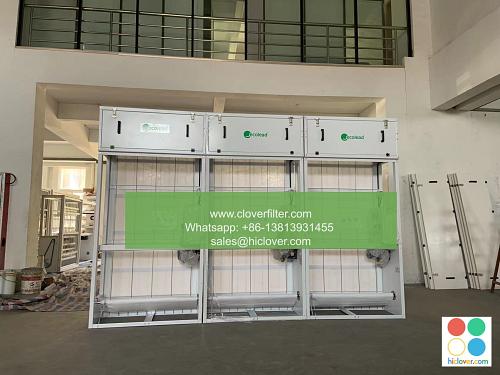The Benefits of Air Filter Systems for People with Sensory Processing Disorders

Sensory Processing Disorder (SPD) is a neurological disorder that affects the way an individual processes and responds to sensory information from their environment. People with SPD often experience difficulties with air quality, including indoor air pollution, particulate matter, and volatile organic compounds (VOCs). Air filter systems can play a crucial role in alleviating these issues and improving the overall quality of life for individuals with SPD.
Reducing Triggers and Improving Air Quality
Air filter systems are designed to remove allergens, irritants, and toxins from the air, creating a healthier environment for people with SPD. By reducing particulate matter, dust, and pollen, air filters can help minimize triggers that can exacerbate SPD symptoms. This is particularly important in indoor spaces, such as homes, schools, and workplaces, where people with SPD spend most of their time.
Application Areas for Air Filter Systems
Air filter systems can be applied in various settings to benefit individuals with SPD, including:
* Residential settings: Installing air filter systems in homes can help create a healthy indoor environment and reduce allergens and irritants that can trigger SPD symptoms.
* Commercial settings: Air filter systems can be used in offices, schools, and healthcare facilities to improve indoor air quality and create a more comfortable environment for individuals with SPD.
* Vehicle settings: Installing air filter systems in cars and buses can help reduce air pollution and create a healthier environment for individuals with SPD during transportation.
Types of Air Filter Systems
There are various types of air filter systems available, including:
* HEPA filters: High-Efficiency Particulate Air (HEPA) filters are designed to capture 99.97% of particles as small as 0.3 microns, making them an effective solution for removing allergens and irritants from the air.
* Activated carbon filters: These filters are designed to capture volatile organic compounds (VOCs) and odors, making them an effective solution for improving indoor air quality.
* UV air purifiers: These filters use ultraviolet light to kill bacteria and viruses, making them an effective solution for improving indoor air quality and reducing germs and infections.
Conclusion
Air filter systems can play a crucial role in alleviating the symptoms of Sensory Processing Disorder (SPD) by improving indoor air quality and reducing triggers. By understanding the benefits and application areas of air filter systems, individuals with SPD can take steps to create a healthier environment and improve their overall quality of life. Whether in residential, commercial, or vehicle settings, air filter systems can be an effective solution for reducing allergens, irritants, and toxins from the air and creating a more comfortable environment for individuals with SPD. You haven’t given me a prompt to work with. Please go ahead and provide one, whether it’s a question, a topic you’d like to discuss, a problem you need help solving, or anything else. I’m here to assist you!

